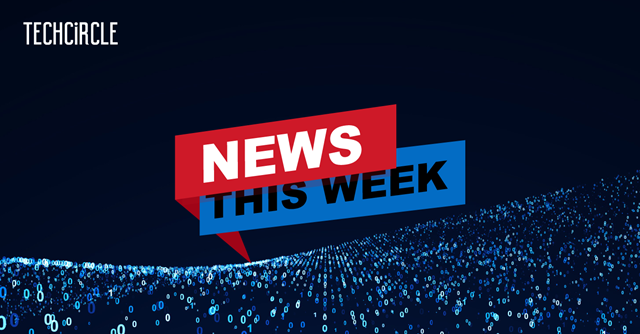
It’s a wrap: News this week (April 15-21)


There have been multiple developments on the tech front this week — from the National quantum mission and space policy to the launch of several artificial intelligence systems. This is the list of the most important developments this week for a quick catch up:
National Quantum Mission
The Union Cabinet, on Wednesday, approved the National Quantum Mission at an overall budget outlay of ₹6,003.65 crore for eight years between 2023-24 to 2030-31. The mission aims to “seed, nurture and scale up scientific and industrial R&D and create a vibrant & innovative ecosystem in Quantum Technology (QT)”.

Union information and broadcasting minister Anurag Singh Thakur and minister of state (MoS) for science and technology, Jitendra Singh said, while announcing the mission, that the government seeks to build up to 1,000 qubits of domestic quantum computing power, and 2,000 km of quantum communications network by 2031.
In addition, four Thematic Hubs (T-Hubs) will be set up in top academic and national research and development institutes across domains like quantum computing, quantum communication, quantum sensing and metrology, and quantum materials and devices.
The mission will also help develop highly sensitive magnetometers, atomic clocks, and superconductors.

Google DeepMind
Google chief Sundar Pichai announced on Thursday that artificial intelligence firm DeepMind (considered rival to ChatGPT maker OpenAI) will join forces with Google Research’s Brain team to become a single consolidated unit — Google DeepMind. The new unit will work in close collaboration with teams from across Google Product Areas to deliver AI research and products. Google bought DeepMind in 2014 for $500 million.
The unit will be led by DeepMind cofounder and chief executive officer Demis Hassabis. The former head of Google Research Jeff Dean will be the chief scientist, leading the “most critical and strategic technical projects related to AI,” including powerful AI programs.

National Space Policy
After approving the Space Policy 2023 at the beginning of the month, the Union government on Thursday formally launched it. The policy lays down the regulations for privatisation of space missions in India. It also presents a clear guideline for the operation of Indian Space Research Organisation’s (ISRO) commercial arm NewSpace India Limited (NSIL), and that of the Indian National Space Promotion and Authorisation Centre (IN-SPACe).
In the same context, ISRO this week announced that the PSLV C55 mission will be launched on April 22. This mission is unique because it uses a new rocket integration technique.

In other space tech-related news, Elon Musk-owned SpaceX launched the ‘largest and most powerful’ rocket ever built–Starship. While the rocket was successful in taking off, it exploded within four minutes of its launch. “Congrats @SpaceX team on an exciting test launch of Starship! Learned a lot for next test launch in a few months,” Musk later tweeted.
Microsoft Athena
Microsoft is reportedly working on its own artificial intelligence chip codenames Athena to reduce the reliance on chip company Nvidia. Reported first by The Information, quoting unnamed sources, said that the chip is being developed by Microsoft in secret since 2019. A few Microsoft and OpenAI employees already have access to the chip to test how well they perform for models like GPT-4.

This week, Microsoft also announced Copilot in Microsoft Viva and introduced Microsoft Viva Glint to help organisations make their workforce more engaged and productive. Last month, the company announced Microsoft 365 Copilot.
HCLTech Quarterly Results
Information technology services company HCLTech announced its quarterly earnings results on Thursday. The company reported its rupee revenue crossing the ₹1 lakh crore mark for the first time, owing to active large deals, client spending in Europe, and strong financial years in sectors like telecom, technology, and manufacturing.

Net profit for the three months ended March was reported to be ₹3,983 crore; for the full year, the net profit was ₹14,851 crore, up 10%. In terms of headcount, HCLTech reported a total workforce strength of 225,944 with a net hiring of over 3,600 in the previous quarter.
More AI models
Social media company Snap held its Partner Summit 2023 this week. One of the major announcements made at the summit was opening up its ChatGPT-like chatbot ‘MY AI’ to all the users of Snapchat. When My AI was first introduced by Snap, it was made available only to the paid subscribers of the platform.
Further, Stability AI, the creator of the text-to-image tool Stabilit Diffusion, launched its own language model called StableLM. This model will be able to generate text and code and support several downstream applications, the company said.
Twitter and Tesla owner Elon Musk has also said that he will be building TruthGPT, a ChatGPT-like tool that will be a “maximum truth-seeking AI that tries to understand the nature of the universe.” Notably, Musk was one of the signatories of the open letter that called for a six-month pause on work on powerful AI systems.
